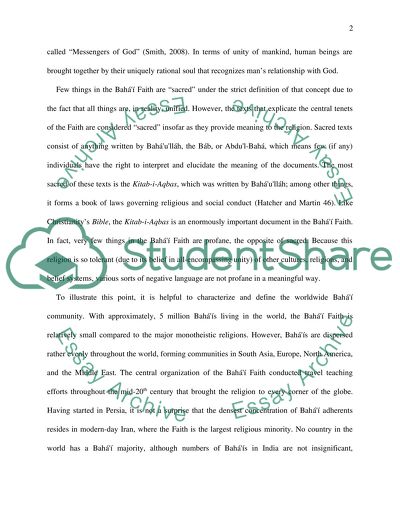Cite this document
(“The Bahai Faith: Origins and Relevance of a Worldwide Religion Essay”, n.d.)
The Bahai Faith: Origins and Relevance of a Worldwide Religion Essay. Retrieved from https://studentshare.org/sociology/1435968-religion-project
The Bahai Faith: Origins and Relevance of a Worldwide Religion Essay. Retrieved from https://studentshare.org/sociology/1435968-religion-project
(The Bahai Faith: Origins and Relevance of a Worldwide Religion Essay)
The Bahai Faith: Origins and Relevance of a Worldwide Religion Essay. https://studentshare.org/sociology/1435968-religion-project.
The Bahai Faith: Origins and Relevance of a Worldwide Religion Essay. https://studentshare.org/sociology/1435968-religion-project.
“The Bahai Faith: Origins and Relevance of a Worldwide Religion Essay”, n.d. https://studentshare.org/sociology/1435968-religion-project.


